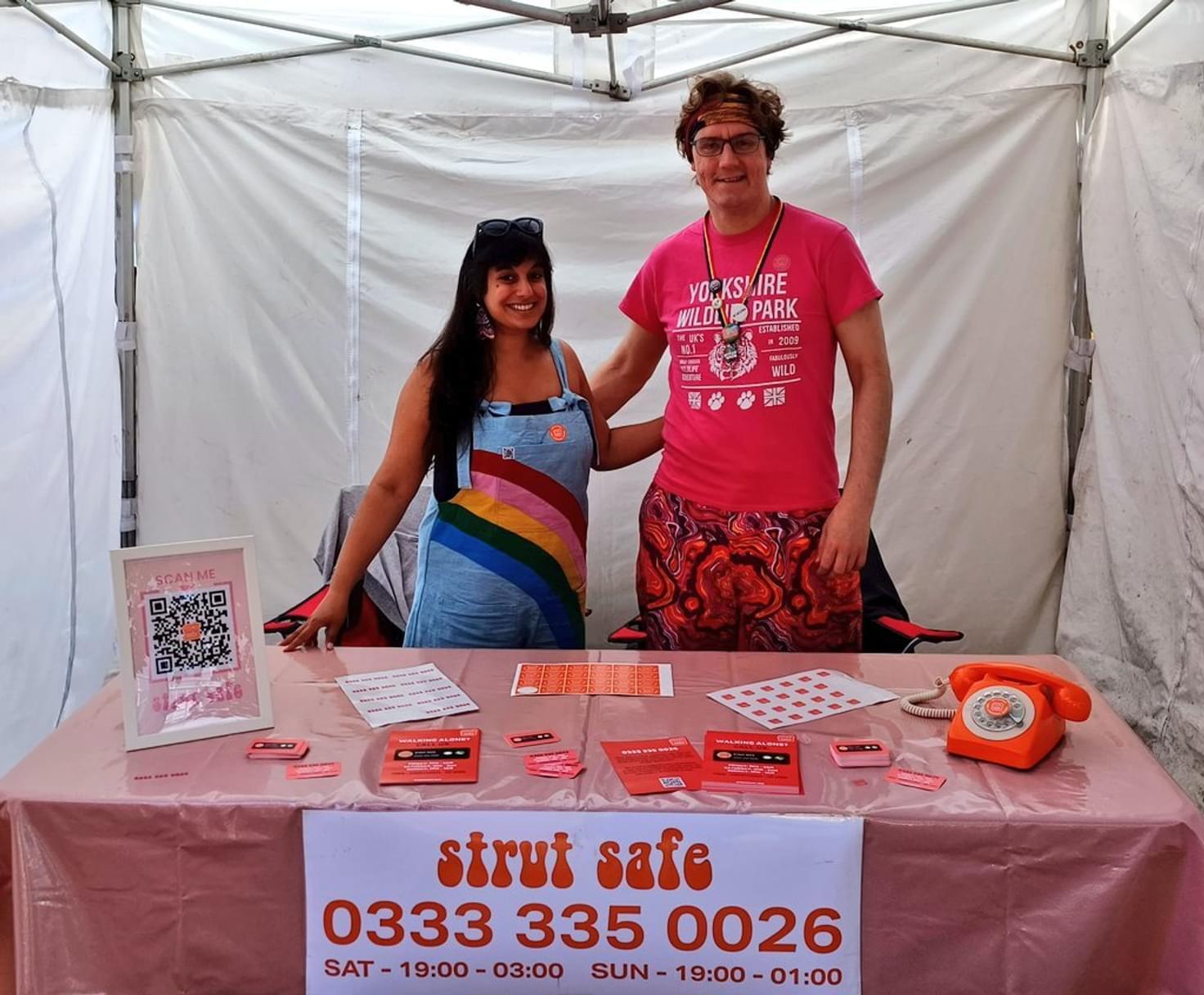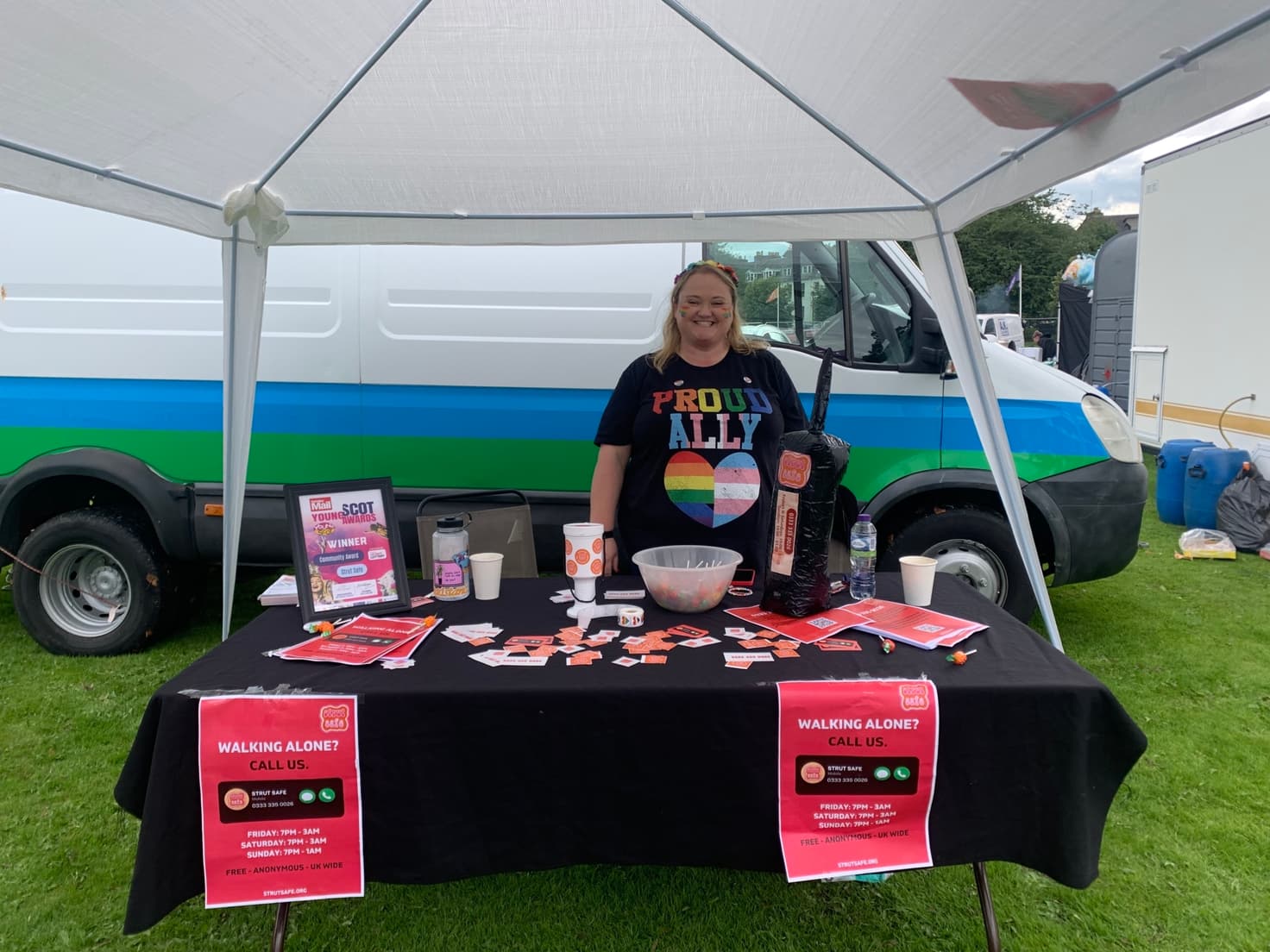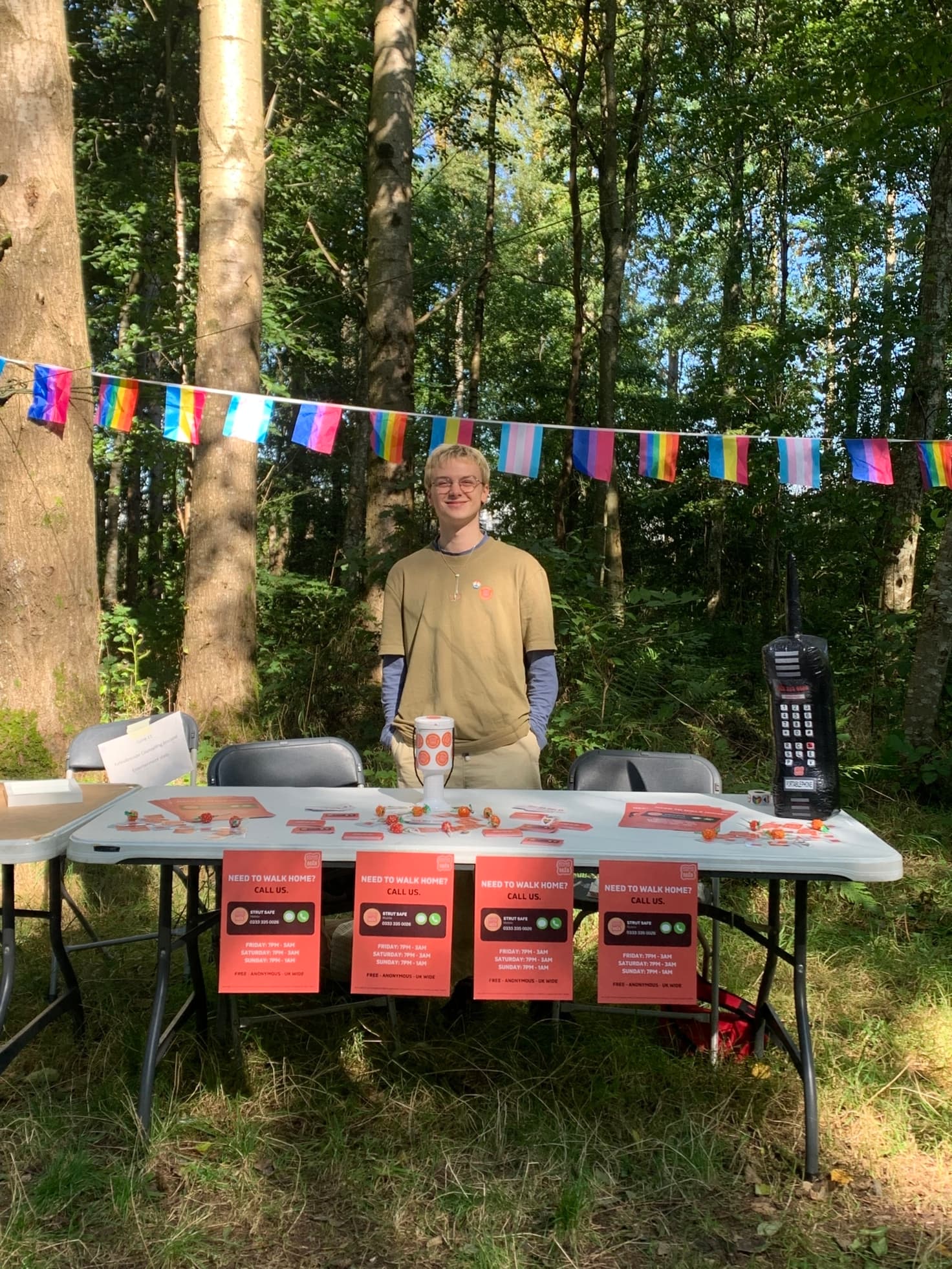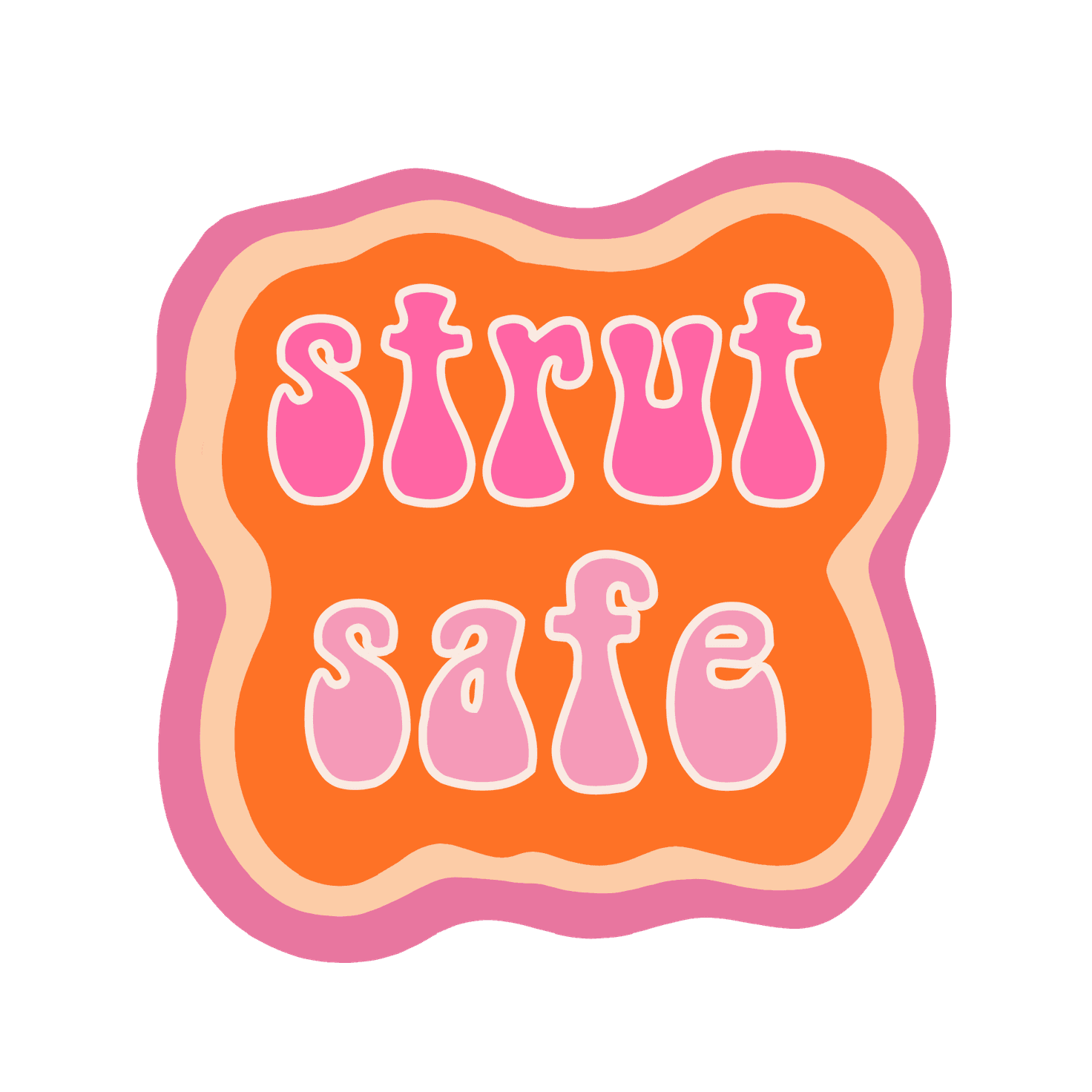
Words by Abi Scaife
You’re walking back home after a night out, or a long shift at the office. It’s winter so the darkness is drawing in earlier, and you know that makes you more vulnerable.
The thing that strikes you as you’re travelling alone in the dark is how isolated you are - and if it wasn’t quite so late you might call up a friend or a loved one. But in the early hours of the morning, what are you supposed to do?
Strut Safe is a phone service available nationwide. For anyone who is walking home alone late at night, or alone in an environment where they feel vulnerable or unsafe, there is a volunteer happy to talk.
Smiley News was privileged enough to be able to chat with Heather, one of Strut Safe’s 80 volunteers who work the phone lines every weekend.

“It gives you that comfort that somebody's with you… and you're not alone,” explains Heather, as to why the phone line is so important.
“We will stay with you until you get to a safe place. You don’t have to be walking - if you're somewhere that you don't feel safe, we will we will take your phone call.”
Street safety is a real concern - particularly for women and other minority groups. At the start of this year, Smiley News spoke to Holly Bruce, a city councillor for Glasgow who is helping to redesign the city under a feminist lens. One of the things Holly was keen to work on was street safety - making it safer women, people of colour and other vulnerable people to move around the city after dark.
In a similar way, Strut Safe is giving people that support and reassurance nationwide - though they can’t be there to physically make the streets safer, at least they can make a difference from afar.
“We tend to hear from women,” explains Heather. “Certainly that's who I get on the phone. We do have others, as well, but it tends to be younger women walking home by themselves.”

For women in particular, street safety is something that’s ingrained into us from the beginning. Don’t go out late at night - and if you do, take a friend. If you can’t, take your keys, wear something bright, let someone know where you’re going. Our whole lives we have been on the defensive - because if you haven’t been targeted at night before, you know somebody who has.
According to the Office of National Statistics, one in two women and one in seven men felt unsafe walking alone after dark in a quiet street near their home. According to a report by Stonewall, more than two in five trans people (44 per cent) avoid certain streets altogether because they don’t feel safe.
You might have seen the groovy, retro Strut Safe graphics floating around on social media, or maybe they were recommended to you from a friend - but the rate at which they are being shared just goes to show how important they are.
While some people are clearly more vulnerable than others, fear doesn’t discriminate - and there’s a reason horror films usually take place in the dark. It’s scary to be out on your own in the dark, especially in winter when people are walking with their hoods down, not meeting your eyes.

“We've all probably experienced something, or witnessed something or we know somebody who has,” says Heather. “When I used to walk home from the pub or whatever, I’d call my mother and she would talk to me till I got home [but] not everybody has that option. It's an opportunity for me to give something back.”
Heather spends a few hours a month volunteering with Strut Safe - their phone lines are open on Fridays and Saturdays from 7pm to 3am, and Sundays 7pm to 1am. While waiting for calls she fills her time with anything she can think of - watching TV, doing housework, and even making soup. She’s one of 80 volunteers who all take on a few shifts a month, helping to keep people all over the country safe in the dark - because we all deserve to be able to exist in this world without fear for our safety.
“Instances are still occurring where people don't feel safe - I think that's that's why things like Strut Safe have come to the fore,” admits Heather. “It's a service that that people need, and I wish we didn't have to be here. Frankly, I really do. But sadly, that's that's how we live at the moment.”
Maybe we wish organisations like Strut Safe didn’t need to exist - but we’re so glad they do.
To support Strut Safe financially, or to find out more about volunteering with them, please visit the Strut Safe website.
At Smiley Movement, we like to elevate the work of charities across the world. Here are three charities whose causes align with the themes in this article.
The Fawcett Society. This is the UK's leading charity campaigning for gender equality and women's rights. Support them here.
The Diversity Trust CIC. This Community Interest Company, established in 2012 in the UK, has a mission to ‘influence social change to create a fairer and safer society’. Learn more here.
Equally Ours. This is a UK charity that brings together people and organisations working across equality, human rights and social justice to make a reality of these in everyone’s lives. Find out more here.
This article aligns with the UN SDG Partnership for the Goals.